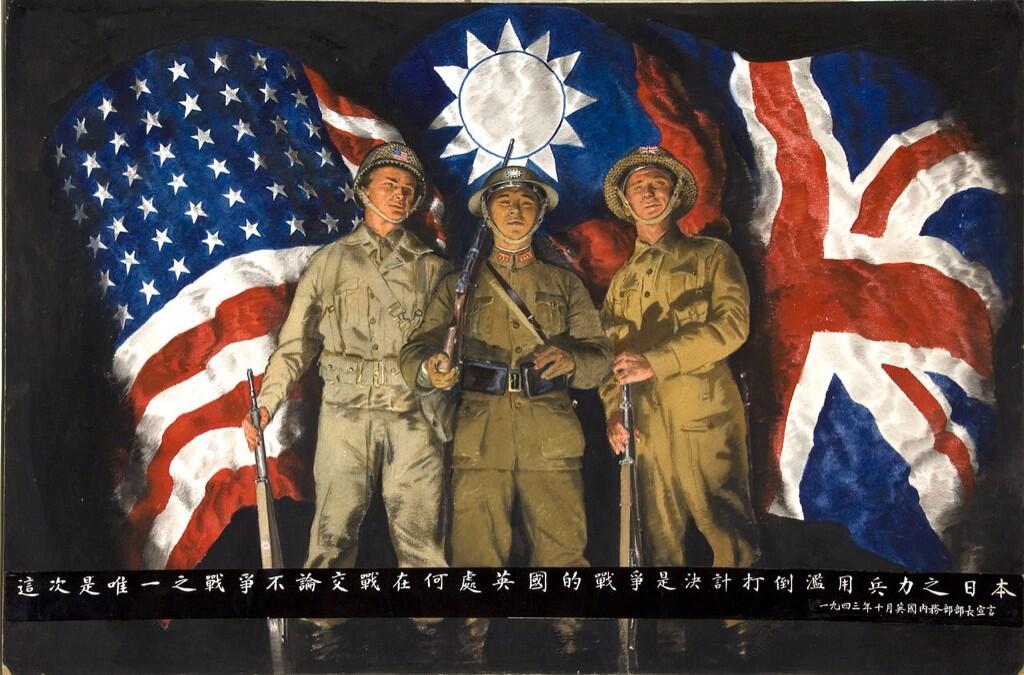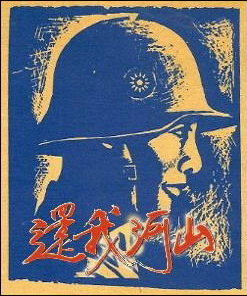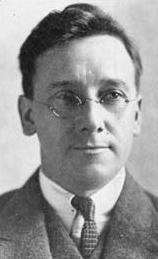‘It’s All One War’
- By Peter Harmsen
- 17 April, 2014
- No Comments
 The poster above is of British origin, and with the Chinese soldier placed at the center it is clearly meant to signal that the United Kingdom considers the Chinese contribution to the Allied war effort of key importance. This is underlined by the Chinese text, which roughly translates as follows: “This is the only war we have. No matter where it is fighting, Britain is aiming to bring down Japan and its abuse of military power.” It is described as a quote from October 1943 by the British home secretary, who is not named.
The poster above is of British origin, and with the Chinese soldier placed at the center it is clearly meant to signal that the United Kingdom considers the Chinese contribution to the Allied war effort of key importance. This is underlined by the Chinese text, which roughly translates as follows: “This is the only war we have. No matter where it is fighting, Britain is aiming to bring down Japan and its abuse of military power.” It is described as a quote from October 1943 by the British home secretary, who is not named.
The exact origin of the quote is a bit of a mystery. Perhaps it refers to a speech delivered by Herbert Morrison, the British home secretary and minister of home security, at a luncheon of the Anglo-American Press Association on October 6, 1943. No sentence in the text of the speech matches the words on the poster exactly, but the general message is the same: Morrison was speaking on the subject of “Clearing Away Some Misunderstandings,” and among these was the idea, common in the United States, that Britain wasn’t serious about fighting Japan.
While conceding that the British public considered Germany to be the main enemy – “after all, it wasn’t the Japs who bombed London” – he stated that it really made no difference: “It’s all one war, no matter where it’s fought.” A little later, he reinforced that message: “Britain’s war is set firmly towards an objective which includes the crushing of militarist Japan as certainly as it includes the final overthrow of Hitlerism.”
These reassuring words may have been targeted at the Chinese ally as much as the Americans. The Chinese Nationalists under Chiang Kai-shek were anti-imperialists as a matter of fundamental ideology, and they were deeply suspicious of Britain’s schemese after the war. This was probably why Morrison also felt a need to address the China issue directly. “It is a matter of profound concern to us as it is to our Allies,” he said, “that the end of the war should see the establishment of a Chinese nation free to work out in peace its tremendous destiny.”
Morrison’s speech was widely quoted in the international media at the time. One part was left out in the reports, however. This was where Morrison referred to Britain’s possessions in the Chinese cities of Hong Kong and Tianjin as proof of its commitment towards Asia. Both areas had been important bases of British commercial and military power for decades prior to the Pacific War, and both were sore points for the Chinese Nationalists, who disliked the semi-colonialist foreign presence in Chinese intensely.
As it were, the British empire was a spent force in Asia after the war, and barely managed to reassert itself on the Chinese mainland before the communist takeover in 1949. In Hong Kong, however, a last vestige of Britain’s once-global empire endured until 1997.




 Copyright © 2024
Copyright © 2024
Leave a Reply